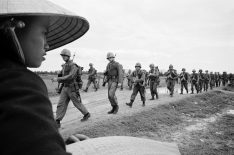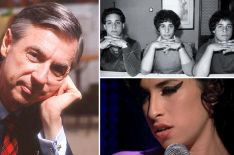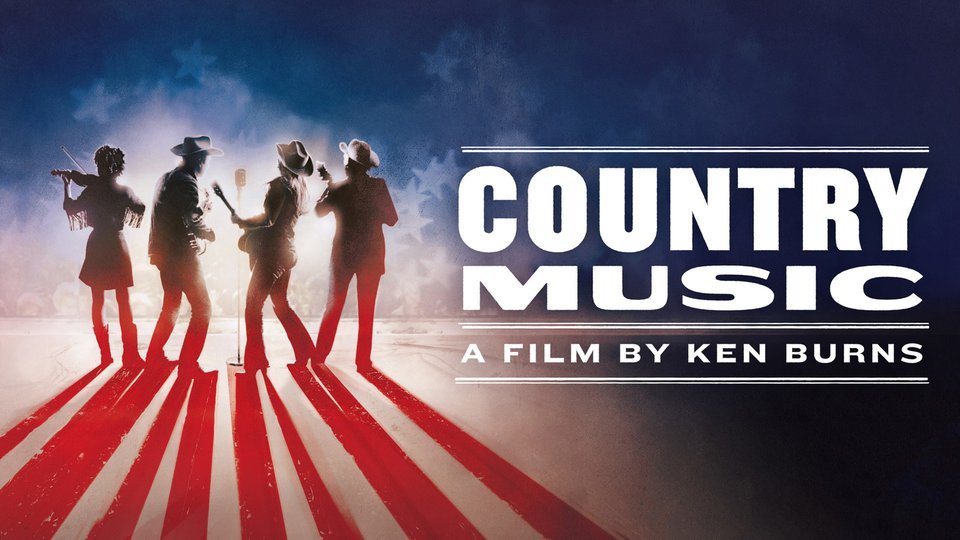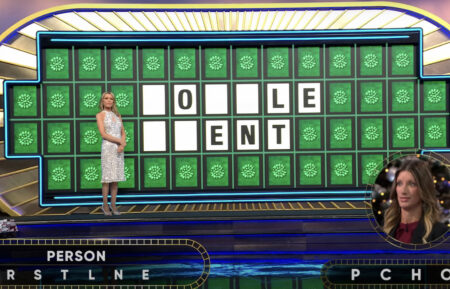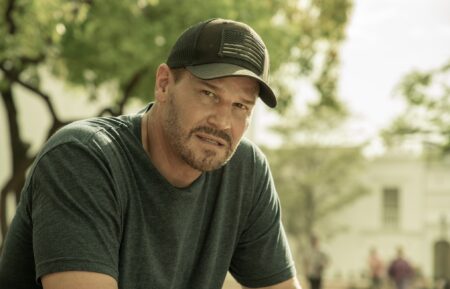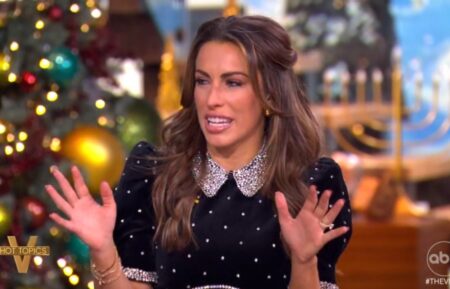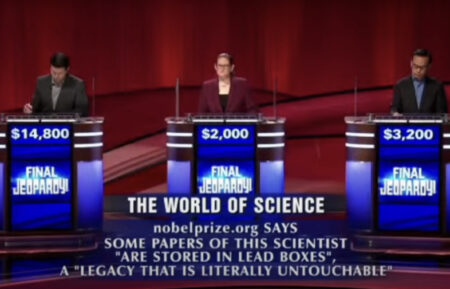‘Country Music’s Ken Burns Teases Artists’ Emotional Stories in PBS Docuseries
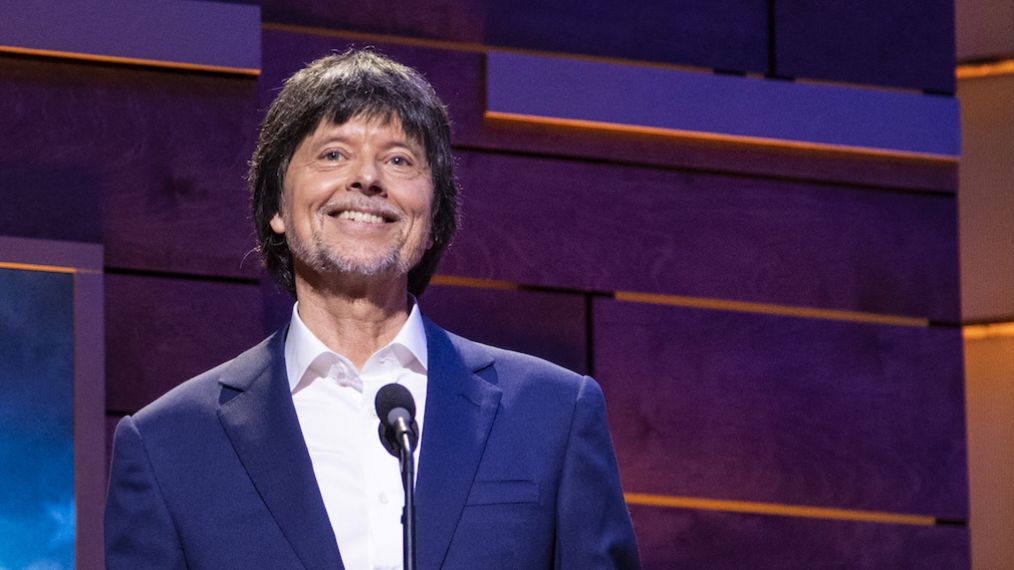
Fall Preview
Keep the Kleenex handy. So says Emmy-winning documentarian Ken Burns, who has been making us cry ever since we heard that Union soldier’s haunting love letter to his wife in the 1990 phenomenon The Civil War. A slew of riveting projects, including Baseball (1994) and The Vietnam War (2017), followed.
Burns’ latest — the eight-part, 16-hour Country Music — charts the evolution of a genre known for soul-baring songs of love and loss and for talented but tortured icons who died too young (“Hillbilly Shakespeare” Hank Williams) or lived long enough to find inspiring redemption (Johnny Cash, with the support of wife June Carter Cash). Perhaps you should grab those tissues now.
This series took eight years to make, and 20 of the 101 people interviewed have since passed away. Whose memories are you most grateful to have captured?
No. 1 is Merle Haggard. He was as interested in telling us about his musical heroes — Jimmie Rodgers, Bob Wills, the Maddox Brothers and Rose — as he was in sharing his own unbelievable personal history. I can’t believe Hollywood will not make a Merle Haggard biopic after they see this. [Bluegrass great] Ralph Stanley [recalled] the wonderful choice he had to make [as a teen] between a musical instrument and a pig — thank God for the world he chose the banjo. And I can’t imagine our scene on outlaw country without [Nashville insider] Hazel Smith lecturing to us, saying, “I named it.” I don’t know that any other film [we’ve done] has that kind of joyous celebration of the unexpected and the unpredictable.
Some of the most prolific songwriters often clam up in interviews. How did you get Willie Nelson to open up about the creative war he and fellow “outlaw” artists like Waylon Jennings waged against the polished Nashville sound?
When we finally got him, it had to be in his bus with the AC and the engine running — which drives our soundman crazy — at rush hour next to the Treasury Department in Washington, D.C. Even his people were saying, “You know, he’s not gonna talk. He’s gonna be monosyllabic.” I asked first about the early heroes, Ernest Tubb and others, so that he began to relax. We were able to get all three and a half pages of our questions answered and then some. As we left, we were high from the interview and perhaps high from a contact with his choice of smoking material.
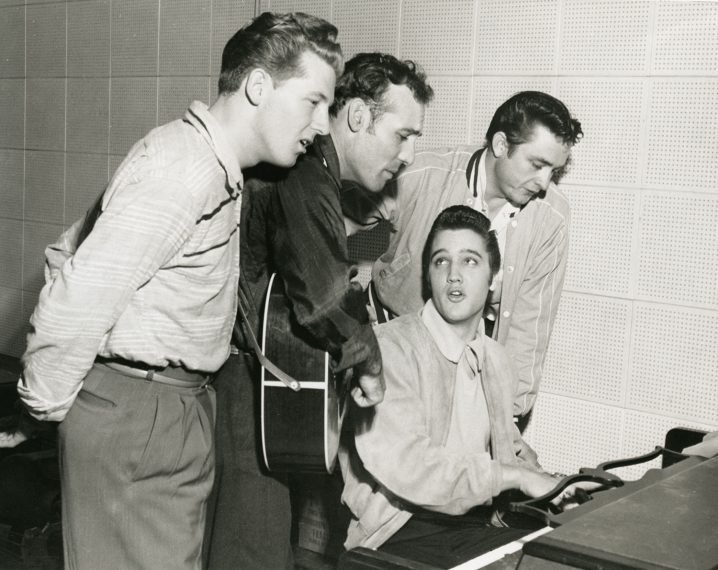
Jerry Lee Lewis, Carl Perkins, Elvis Presley, and Johnny Cash at the Sun Records studio in Memphis, 1956.
(Credit: Sam Phillips Family, courtesy Colin Escott)
We learn how so many legendary songs, from Williams’ “Hey, Good Lookin'” to Nelson and Haggard’s “Pancho and Lefty,” came to be written or recorded. Which backstories made you gasp when you first heard them?
Dolly Parton‘s “I Will Always Love You.” Everybody knows Whitney Houston took that song to extraordinary heights, but once you know the story [Parton wrote it for mentor Porter Wagoner, who wouldn’t allow her to leave his TV show and control her own career], Dolly’s version achieves a parity with Whitney’s — and, in some ways, is even better because you understand all the powerful emotions.
The other one is Vince Gill’s “Go Rest High on That Mountain.” He first starts [writing it] trying to deal with his grief from the death of his friend Keith Whitley. Then, when he’s able to finish it, it becomes about his loss of his brother. And then he can’t [get through] singing it at George Jones’ memorial service at the Opry. He says right before that moment [in the film], “All I’ve ever wanted out of music was to be moved,” and that may be what the whole thing is about.
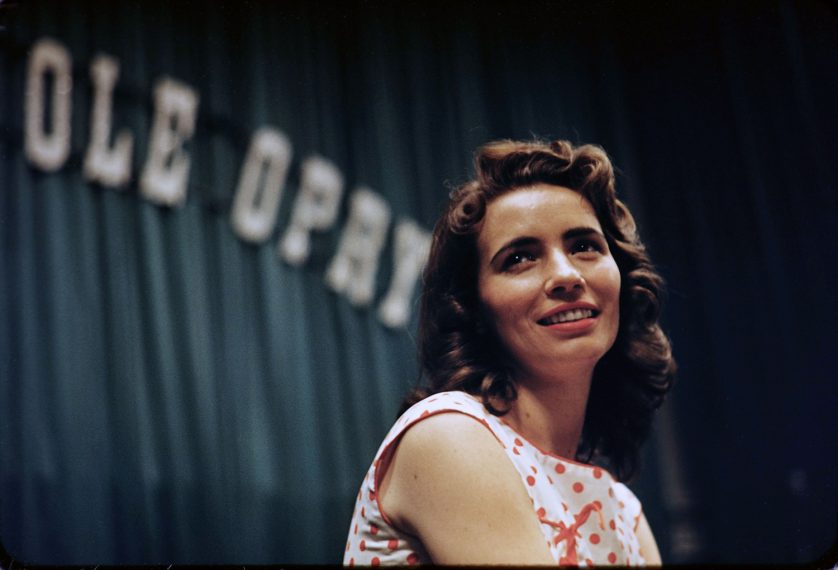
June Carter, c.1957. (Credit: Sony Music Archives)
The last episode (with Gill) is also a big tearjerker: Kathy Mattea talks about “Where’ve You Been,” inspired by the bittersweet love story of her songwriter husband Jon Vezner’s grandparents. Plus, Cash’s daughter Rosanne movingly describes what his “I Still Miss Someone” and the Carter Family’s “The Winding Stream” signify in their relationship.
It’s too much! Episode 8 replaces your psychiatrist’s bill because it’s so cleansing. I’ve seen it about a thousand times and can’t watch any of that without the accompanying cathartic tears.
Country Music, Premieres Sunday, September 15, 8/7c, PBS (check local listings at pbs.org)
Interview Highlights
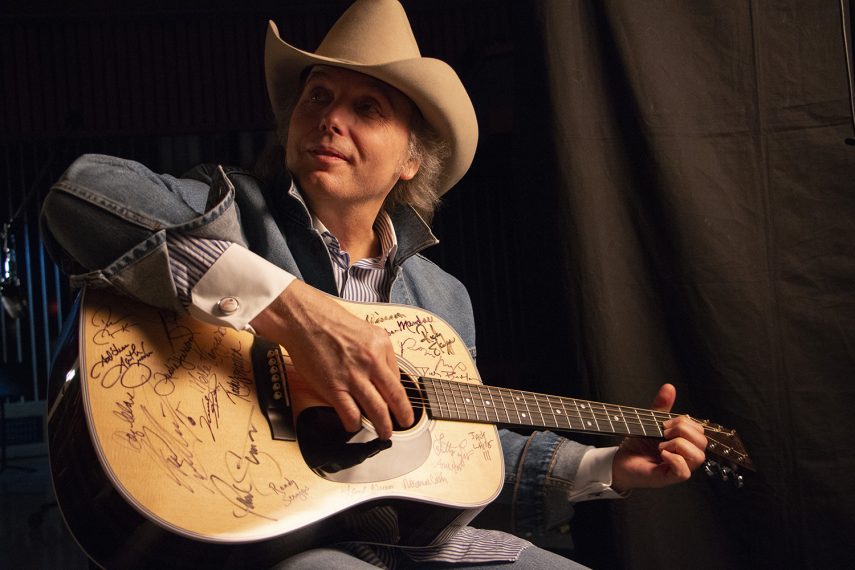
Dwight Yoakam (Credit: PBS)
Dwight Yoakam
An expert on the rock-influenced Bakersfield sound of, for example, Buck Owens and Merle Haggard, the Grammy winner pauses mid-sentence to fight back tears while reciting the lyrics to Haggard’s single-father lament “Holding Things Together.” Says Burns: “Filmmaking hates silences, but sometimes that’s the most powerful thing.”
Marty Stuart
Before waxing poetic on Hank Williams’ songwriting, the Country Music Hall of Fame’s 2019 artist in residence cuts to the chase on a juicier topic: the feud between father of bluegrass Bill Monroe and ex-bandmates Lester Flatt and Earl Scruggs. “Nobody can hold a grudge like hillbillies,” Stuart declares. “I can attest to that!”
Rhiannon Giddens
One of the youngest artists featured, she helps trace country’s roots back to the instruments and songs of immigrants and slaves and explains how jazz, blues and country artists influenced one another. The genres emphasize different things, she says admiringly, “but where they all start is in this beautiful boiling American music pot.”
Fred Foster
The late record producer, who shares a writing credit with Kris Kristofferson on “Me and Bobby McGee,” gets misty as he recounts hearing Janis Joplin’s cover: “That’s not a record; that’s an experience,” Foster says. “I called Kris and told him, ‘Don’t be alone when you hear this.'”


